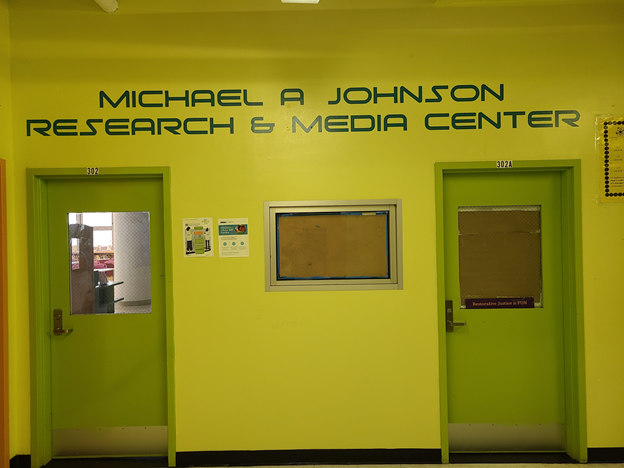“Huntsville Councilman shares personal Facebook video after attempt to break up a neighborhood fight”— WHNT News 19
Councilman Devyn Keith says: “Things must change”
“These two kids are fighting over something about basketball,” describes Keith. “We grabbed two of the main agitators and we talked to them and we explained to them that you can’t make a bad decision like this because it will truly affect your life. For a moment, we connected. This little kid understood what I was saying. I saw him look at me and understand that I was telling him that this decision could affect the rest of his life.”
But that connection abruptly ended, Keith says, when the young man’s mother pulled up.
“A parent pulls up in a car and almost hits the crowd explains Keith. “She jumps out of the car, sees me holding her son and yells to me, ‘Let go of my son.’ I understand that she doesn’t know what’s going on. I eventually say to her, ‘We’re stopping your son from a fight.'”
Her next words to him took him by surprise.
“She says to me, ‘I didn’t raise no punk, let `em fight.”
As a principal one of my end of the day/evening (Yes, principals with any sense stay late into the evening; because if you do your administrative paperwork during the school day, children will fall through the support net, and be lost forever!) reflections was always accompanied by a sigh: “We are going to really need to do better if we hope to survive and thrive collectively as a nation”. This feeling almost always occurred after having a difficult parent conference on that day.
“Difficult” meaning, not only was the parent and I not on the same page; we were not even in the same book!
Now this has nothing to do with finances, level of formal education, mastery of the English language, or single parenthood. Some of my greatest and most successful (for the child) educational partnerships were made with parents who were poor, limited formal education, and little to no mastery of the English language; and in many cases the parent (mothers and fathers) were raising the students and other siblings alone as a single parent. On the other hand I have had 2 parent families, with access to more than adequate financial resources; who were formally and ‘credentially’ well “educated”. But whose mis-education actually caused them to listen and believe that crap in college when some professor told them that it was a good idea to: “just let the children be (whatever that means) themselves!”
For the children of disenfranchisement, meaning those students in this society who are born with a target on their backs, and many social-political hurdles in their path; letting them “do their own thing”, is a future-success death sentence. Parents need to know where their child stands politically (racially, economically, zip code, etc.), in this nation, and then adjust their approach to parenting appropriately.
There is after all some survival sense making to the throughout all of animal nature process (see: bears, hippos, apes, etc.) of providing a teaching and learning parental guidance experience. Not really a deep intellectual process here, which is the reason for the existence of non-thinking “instincts” as the driving force. The primary purpose of this natural process is to increase the odds of the offspring successfully surviving into adulthood. Have some parents in our society lost, or misplaced their natural parental instincts? How did they lose them; and how can those necessary for species survival instincts be reclaimed and restored, is perhaps a topic for another blog post!
A politician runs smack into a reality for which every principal of non-entitled (and title 1) students is familiar… It is that moment when that parent encounter goes terribly wrong!
“I didn’t raise no punk let them fight”
Let me first get a pet peeve out of the way: This is just another example of why all elected officials should seriously consult with, and sincerely listen to experienced and practicing educators before making education policy decisions. And not just the “pro forma” (going through the motions) stuff that usually happens!
It is unfortunate in this particular case, but many former and present principals could have at least prepared this clearly dedicated and concerned elected official for the shock and pain he discovered from that encounter with a parent as he tried to break up a fight in the neighborhood. I could have provided him with a list of the “greatest hits” of foolishness that I have heard over the years coming from the mouths of more than a few parents sitting in my office. Sometimes I just sat there and wondered: “There is something wrong with our society when we place such strict requirements for acquiring a driver’s license; while at the same time requiring no pre-parental instruction as to how to properly raise a human being.” After a parent would say something like the above statement to me, I thank them for coming in. But the next day; truly actualizing the “In loco parentis” (in place of the parent) principle we were taught in our supervision and administration program; I would pull the child aside in the school and say: “You don’t need to worry, I will never call your mother up to this school again*…. from now on you will be dealing with me direct and personal; consider yourself a member of my personal interest and responsibility club”! This is the last thing they wanted to hear. Upon hearing this, one young man once responded: “Oh no, if I get in trouble can you still call my mother to come up?”… My response: “Nope, that ship has left the dock; welcome aboard son!”
*For practicing principals (or teachers), one example of a strategic response to a “no parent help situation”: To deliver the full psychological-change of behavior desired effect; pause for 2 seconds after the initial: “You don’t need to worry, I will never call your mother up to this school again”; and also have a: “I am defeated, you win” look on your face. The student will initially do a happy (and relieved facial expression) dance; thinking: “No more parent conferences, I can really “act the fool” now, this is my lucky day! The 2-sec. creative pause allows you to then effectively and dramatically “drop the other shoe”. The student’s facial expression will quickly change to a frown-sadness face, as they come to the full realization that the principal (and you need to be known as appropriately, situational and more important, effectively “mean”), is now pinch-hitting (taking the place of) for their parent! This then signals a very unlucky day, and days ahead for them. Since by their own confession-intention, thoughts are things pronouncement: “If (when) I get in trouble…”, means they plan to get into trouble again; thus a thoughtful intervention is needed to move the student, with or without parental support to a successful graduation.
You then place the student on a direct principal’s supervision plan. Including randomly observing them in classes. Announce when you enter the classroom: “Good morning Ms. ________; I am here to observe some students”. You need not, and should not look at, or mention the child’s name, but the other students will often give him or her the: “oh-oh, you are in trouble look” (Teenagers have no chill-brakes, and besides, they know who their behavioral challenged schoolmates are!) Have short “stand-up” (you as) parent-teacher conferences during the school day, with the students and their teachers; congratulate them, hug them (and make a big fuss), when they receive a good report! Give these students a daily check off list-form for: attendance, punctuality, conduct, academic performance, positive class participation, homework completion and quiz/test results for every class (Make sure you visit P.E., Art, Music, and other non-standardized testing classes!)
The students should deliver these forms directly to you at the end of the school day. Make them search the building for you; this creates some peer-pressure to behave, since their friends are inconveniently forced to wait for them! They can give the form to your secretary if you are out of the building, “Lord help the child who leaves the school building without turning in that form for the day; because that could generate a principal’s home visit to pick up the form, and that is guaranteed to not make me happy, or them, for these are not the students who look forward to home visits. And they also know that my unhappiness for having to pick up those daily school performance forms from their house, means I will be very creative over the next few days in making them very unhappy! Forgive me for pausing to laugh here, but it was funny. Teachers would come to tell me when sometimes these jokers, after having a not so stellar class, would be reduced to begging teachers to give them a good review in a category; because they knew the price of failure in any category, in any of their classes, meant a continuation of the “pain-plan” I would inflict on them. One being their continuing to be (extending the time) under my strict and direct supervision. Don’t underestimate “extended time” as an effective teen punishment. For teenagers naturally (organically) crave the independent distance from adult oversight.
And for reasons I have not yet fully explored (although I have some ideas), the daily-reporting classroom form is not as effective for high school girls; for non-parental help girl situations; you must take a completely different approach (A theme for a future blog?) For middle school principals, good luck. The success of the “extended time tactic”, literally depends on the child’s personality and the day; some days middle schoolers will be clinging children, and on other days, they will be push you away teenagers!)
But this comprehensive daily-classroom reporting procedure gives teachers some “bargaining leverage” in promoting academic achievement; and it is also an effective way to empower and support (particularly new) teachers in the area of classroom behavior management.
Huntsville Councilman shares personal Facebook video after attempt to break up a neighborhood fight… http://via.whnt.com/TiBRD

